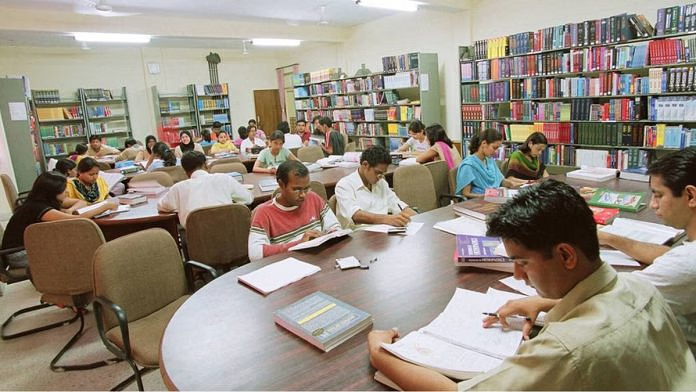
New Delhi: The National Testing Agency (NTA) confirmed on Thursday that the National Eligibility cum Entrance Test (Undergraduate) or NEET-UG will be conducted in pen-and-paper mode for the 2025 session. The exam will follow a single-day, single-shift format, continuing the traditional system. This announcement contradicts the recommendations of a government-appointed panel on exam reforms, which had advised a shift to an online mode.
The seven-member panel, led by former ISRO Chairman K. Radhakrishnan, had submitted its recommendations in October 2024, suggesting that NEET-UG transition to an online format and possibly adopt a multilevel exam structure. These recommendations were made in response to allegations of irregularities in previous NEET-UG sessions, including issues with paper leaks and cheating, which caused delays in the counseling process.
In a statement issued on Thursday, the NTA informed that the decision to maintain the pen-and-paper format was taken by the National Medical Commission (NMC), the body responsible for drafting the NEET-UG syllabus and conducting admissions. Senior education ministry officials clarified that the ministry does not influence the decision on the exam format; it lies solely with the NMC.
Concerns from Candidates and Coaching Bodies
The decision has sparked frustration among candidates and educational groups. Many questioned the purpose of forming the Radhakrishnan committee if its recommendations were going to be disregarded. Anchal Agarwal, a Class 12 student from Delhi, expressed disappointment, asking, “Why did the committee take so many months to come up with recommendations when their intent was not to implement them?”
Keshav Agarwal, a member of the Coaching Federation of India, voiced concerns over the credibility of the examination process and the lack of visible reforms. “The absence of meaningful changes is both disappointing and disheartening,” he said, urging authorities to take steps to restore trust and ensure fairness in the system.
Panel’s Recommendations
The Radhakrishnan panel had proposed multiple reforms, including multi-session testing for large-scale exams like NEET-UG, especially when participant numbers exceed two lakh. It suggested exploring multi-stage testing for NEET-UG and recommended a gradual transition from pen-and-paper to computer-based testing, provided challenges like access to remote areas were addressed.
Additionally, the panel recommended the implementation of a “Digi Exam” system for identity verification, incorporating Aadhaar, biometric data, and AI-based analytics to ensure that the registered candidate is the one sitting for the exam.
APAAR for Increased Transparency
In an effort to enhance transparency and security, the NTA has introduced the Automated Permanent Academic Account Registry (APAAR) ID system for NEET-UG 2025 candidates. The NTA has advised all candidates to use their APAAR ID and Aadhaar-based authentication during the application and examination processes. The move is expected to streamline registration and enhance the integrity of the examination process.
The developments have left many students and educational bodies calling for clarity and greater accountability from the authorities to ensure the fairness and credibility of the NEET-UG exam.